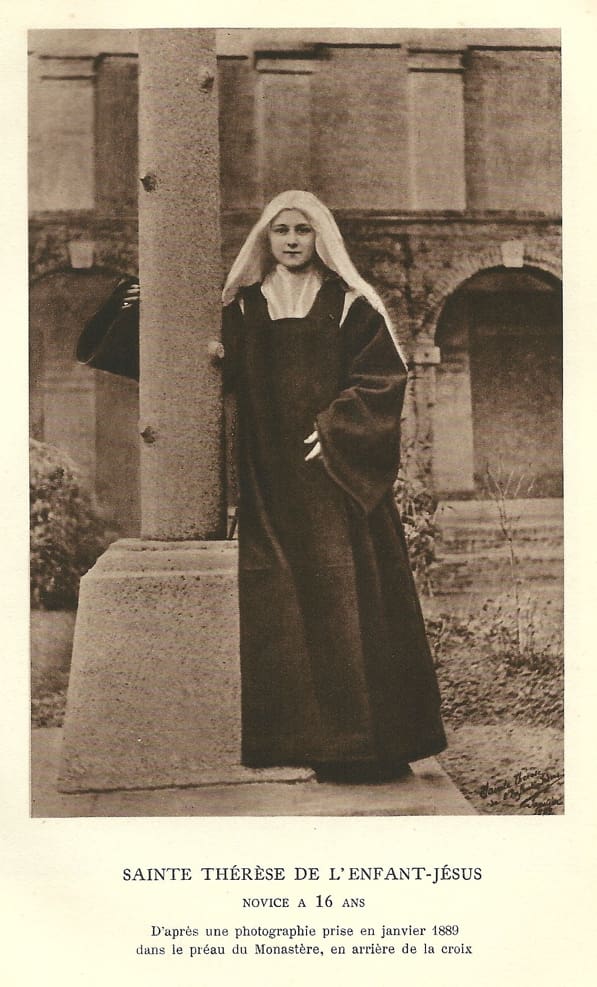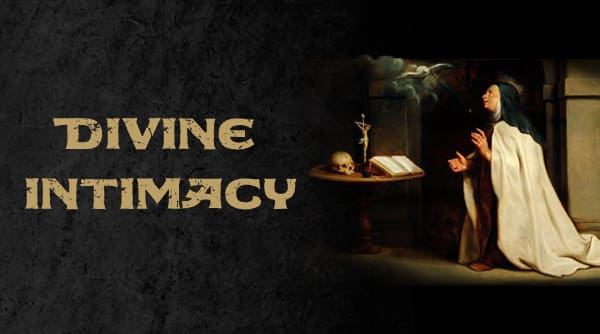Blind Obedience
Presence of God – O Jesus, who out of love for me were willing to submit to Your own creatures, teach me to obey blindly.
MEDITATION
When we see God in our superior we obey without argument or futile reasoning and with no delay: Christus jubet, sufficit, Christ commands, that is enough. What more do I want, when I know that the orders of my superior are those of God Himself? Even if the thing commanded is hard or painful, my certitude that Our Lord expects it of me will give me the strength to undertake it promptly, without offering the least resistance.
Of course there may be cases where there is good reason to think an order has been imposed without taking into consideration facts which, if overlooked, might be prejudicial to the superior himself; then it is well and sometimes even necessary to bring it to his attention. Neither is there any imperfection in asking for explanations when the order does not seem clear or when it places us in a very embarrassing position; however, this must be done with humility, without insistence and with readiness to submit oneself to the decision of the superior. We must have the firm determination not to reason or debate about an order, not to inquire into the motives which might have made the superior give a certain command. If we begin to argue about obedience, we put difficulties in the way of obeying; therefore, we must stop all rationalizing, even interiorly, if we wish our obedience to be a pleasing sacrifice to God. It would be worse still to discuss our feelings with others or to criticize the superior’s decisions; acting in such a way, we should create difficulties in obedience for others as well as for ourselves.
If we want to offer our entire being to Our Lord, we must completely renounce our own way of thinking, for however good it may be, it will always be infinitely inferior to God’s, and God will accomplish His will in us only when we carry out the orders of our superior.
COLLOQUY
 “O Lord, how different are Thy ways from our clumsy imaginings! When once a soul has resolved to love Thee and has resigned itself into Thy hands, Thou wilt have nothing of it save that it shall obey Thee and find out for itself how it may best serve Thee and desire to do so. It has no need to look for paths or to choose them, for its will is Thine. Thou, my Lord, takest upon Thyself the task of guiding it in the way which is the greatest benefit to it. And even though our superior has no mind to our soul’s profit … Thou, my God, hast a mind to our profit, and dost dispose the soul and prepare things for it to do in such a way that, without knowing how, we find ourselves so much more spiritual and so greatly benefited that we are astonished” (Teresa of Jesus, Foundations, 5).
“O Lord, how different are Thy ways from our clumsy imaginings! When once a soul has resolved to love Thee and has resigned itself into Thy hands, Thou wilt have nothing of it save that it shall obey Thee and find out for itself how it may best serve Thee and desire to do so. It has no need to look for paths or to choose them, for its will is Thine. Thou, my Lord, takest upon Thyself the task of guiding it in the way which is the greatest benefit to it. And even though our superior has no mind to our soul’s profit … Thou, my God, hast a mind to our profit, and dost dispose the soul and prepare things for it to do in such a way that, without knowing how, we find ourselves so much more spiritual and so greatly benefited that we are astonished” (Teresa of Jesus, Foundations, 5).
 “O my God, from how much disquiet do we free ourselves when we make the vow of obedience! Having nothing for a compass but the will of our superior, we are always sure of following the right path, and need not fear that we will be misled, even when it may appear that our superiors are mistaken. But when we cease to consult the unerring compass, immediately our soul goes astray in barren wastes, where the waters of grace quickly fail. O Jesus, obedience is the compass You have given me to direct me safely to the eternal shore. What a joy it is for me to fix my glance upon You and then to accomplish Your will” (cf. Thérèse of the Child Jesus, Story of a Soul, 9).
“O my God, from how much disquiet do we free ourselves when we make the vow of obedience! Having nothing for a compass but the will of our superior, we are always sure of following the right path, and need not fear that we will be misled, even when it may appear that our superiors are mistaken. But when we cease to consult the unerring compass, immediately our soul goes astray in barren wastes, where the waters of grace quickly fail. O Jesus, obedience is the compass You have given me to direct me safely to the eternal shore. What a joy it is for me to fix my glance upon You and then to accomplish Your will” (cf. Thérèse of the Child Jesus, Story of a Soul, 9).
O Lord, I want to apply myself to obedience with unshakable confidence in Your divine Providence which rules, guides and directs everything, making all things work together in an ineffable manner for the good of my soul. I wish to apply myself to obedience without the slightest hesitation, binding myself to You and to Your divine will.
+
 Note from Dan: These posts are provided courtesy of Baronius Press and contain one of two meditations for the day. If you would like to get the full meditation from one of the best daily meditation works ever compiled, you can learn more here: Divine Intimacy. Please honor those who support us by purchasing and promoting their products.
Note from Dan: These posts are provided courtesy of Baronius Press and contain one of two meditations for the day. If you would like to get the full meditation from one of the best daily meditation works ever compiled, you can learn more here: Divine Intimacy. Please honor those who support us by purchasing and promoting their products.
Art for this post on blind obedience: Teresa of Avila, Peter Paul Rubens, 1615, photographed by DMonniaux, own work, 2005, CCA-SA 3.0 Unported; Gravure de “Sainte Thérèse de l’Enfant Jésus, Histoire d’une âme écrite par elle-même, Lisieux, Office central de Lisieux (Calvados), & Bar-le-Duc, Imprimerie Saint-Paul, 1937, édition 1940″; PD-US author’s life plus 70 years or less; both Wikimedia Commons. Father Gabriel of St. Mary Magdalen, mirror from open source material.





